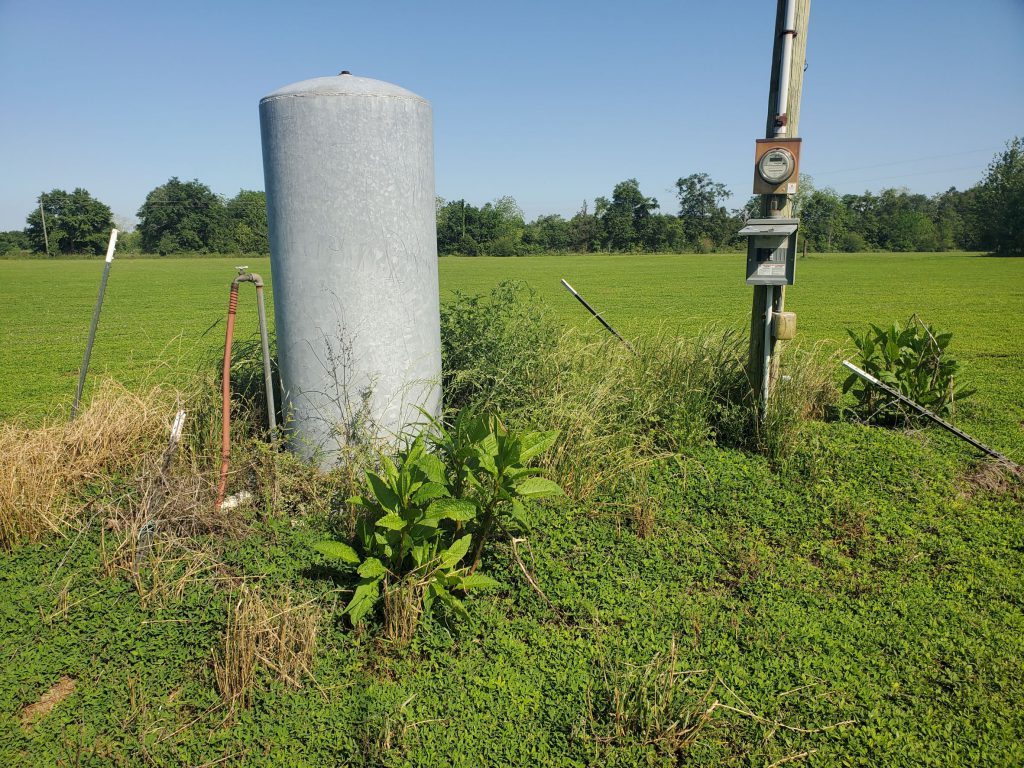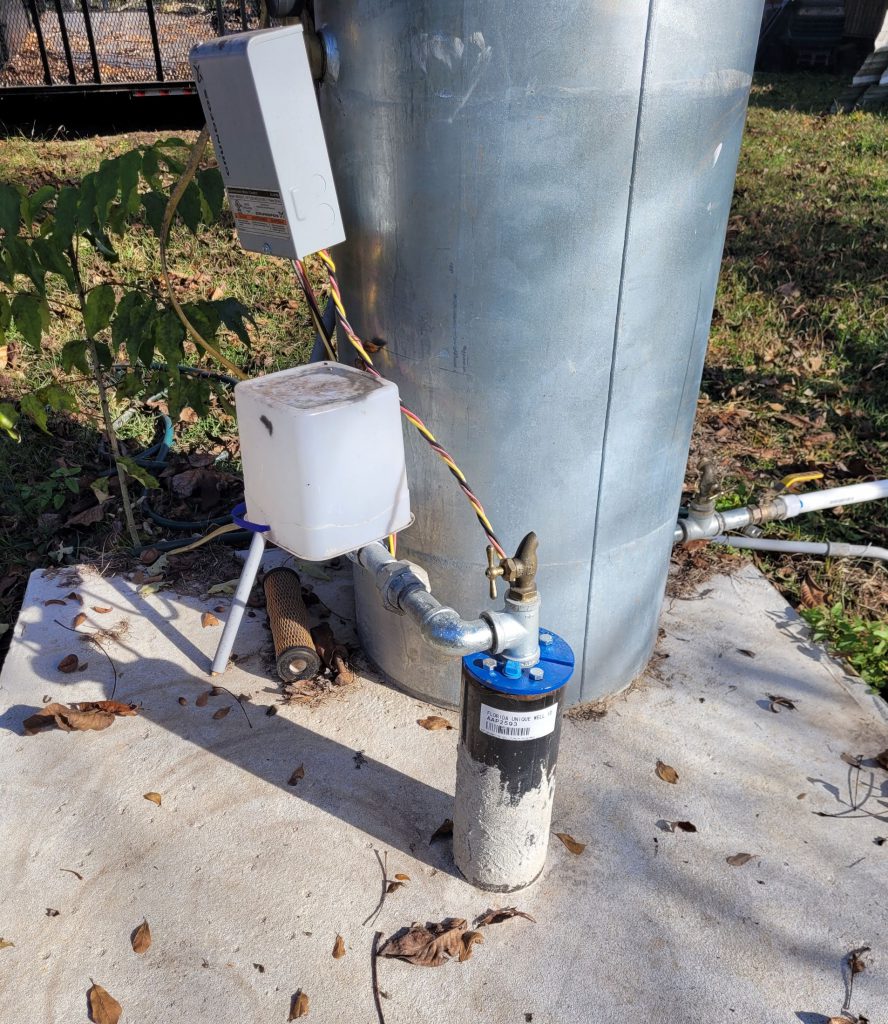
Water well by a perennial peanut field in Jackson County. To protect well water quality, don’t use the area next to a well as a mixing station for chemicals. Image: Cheryl Mackowiak, UF/IFAS
The majority of rural residents in the Florida Panhandle rely on groundwater from private wells for home consumption. Groundwater is also the major source of water used in agricultural production. While public water systems are regulated federally to ensure safe drinking water, private wells are not regulated. Private well owners are responsible for ensuring the safety of their well water.
–
Protect Your Well Water Quality
Basic care at and around your well will reduce the risk of contaminating your well water.

A private well in Jackson County with a sanitary seal (blue metal plate in the forefront) which prevents contaminants from flowing directly into the well. The concrete pad (with a grout seal below the pad) reduces the potential for water to flow down the edge of the well casing and into groundwater being drawn by the well. The spigot on top of the well seal has been installed solely to be able to sample the well water directly. This is a specific requirement in the area this well is located in. Credit: AJ Weiss, FDOH.
- Make sure that the well is properly sealed at the surface to keep pollutants from getting directly into your well and groundwater. A sanitary seal or sanitary well cap (which caps the surface end of the well casing) keeps surface water, pathogens, insects and other animals, chemicals, liquid fuels, and debris from getting directly into your well. Grout, which works as a sealant, is used when a well is drilled and installed to fill the space between the well casing and the edge of the borehole. It prevents surface water from flowing down along the outside of the well casing directly to the groundwater being drawn by the well. Keep the area around your well clean and accessible.
– - Make sure there is at least a 75 ft separation distance between your well and your septic system (this is required in Florida).
– - A well shouldn’t be close to (no less than 100 ft) or downhill from an animal enclosure (cow pens, hog pens, horse barn, etc.).
– - Don’t store any chemicals, fertilizers or fuel near your well or in a well house.
– - Don’t use the area around the well (residential or agricultural) as a chemical mixing station.
–
If you have pesticides that need to be safely disposed of, Operation Cleansweep (a joint FDACS and FDEP program) is a mobile pesticide collection program for farmers, nursery operators, golf course operators and pest control services. Contact Hailey Peters for more information (cleensweep@fdacs.gov; 877-851-5285).
–
Well Water Testing
At a minimum, the Florida Department of Health (FDOH) recommends testing drinking water annually for bacteria (total coliform bacteria and fecal coliforms, usually E. coli). They also recommend testing for nitrate, especially if you have an infant or a pregnant woman in the household. Nitrate levels (at and above 10 milligrams per liter) can interfere with the body’s ability to absorb oxygen.
Depending on where you live and current or past activities in your area, other contaminants may also affect your well water quality. Call your local health department to see if they recommend any additional tests. It’s also important to reach out to them for testing recommendations when:
- There is a change in the taste, appearance, or odor of your water
– - There is recurring gastrointestinal illness or other unexplained illness in the household
– - Your well is flooded or damaged
– - You have a spill of oil, liquid fuels, solvents, or other chemicals into or near your well
– - Any time services or repairs are done and the sanitary seal on your well is opened
–
Most county health departments provide testing for bacterial contamination at a minimum. If they do not offer testing for a particular contaminant, they can help point you to commercial labs in the area for testing. The Florida Department of Environmental Protection (FDEP) also maintains a database of certified water testing labs, which you can search by county.
For those interested, we will be hosting a workshop on private wells and drinking water quality on May 17th from 6:00-8:00 PM Central Time, at the Jackson County Extension Office, in Marianna. We will offer reduced-cost bacteria testing for the first 50 registrants. You can register through this Evenbrite link. Contact Andrea Albertin (albertin@ufl.edu, 850-875-7111) or Terri Keith (terri2003@ufl.edu, 850-482-9620) for more information.
- Testing Your Irrigation Water: A Key Step for Managing Crops and Equipment - November 21, 2025
- What to Do if Sinkholes Open on Your Property - November 15, 2024
- Crop Farmers Implementing BMPs in the Chipola River Basin - May 24, 2024
